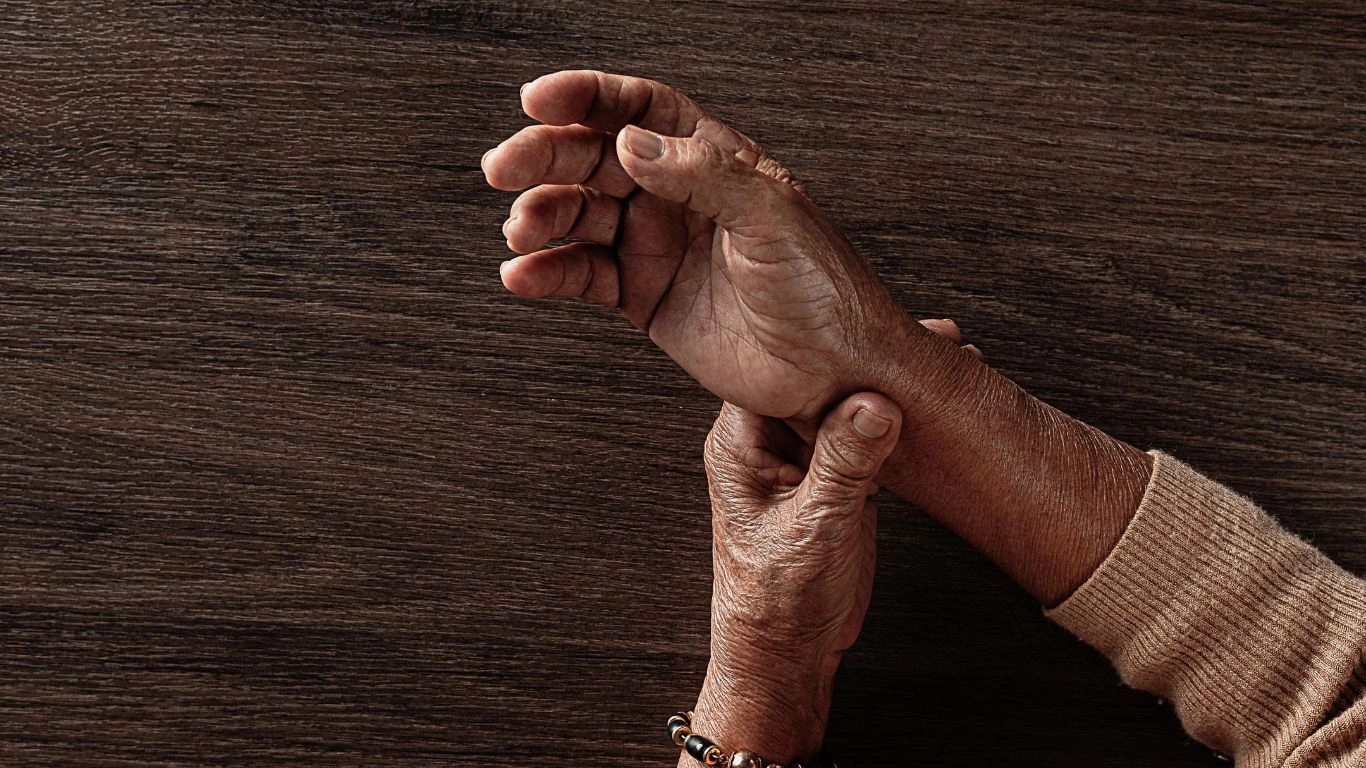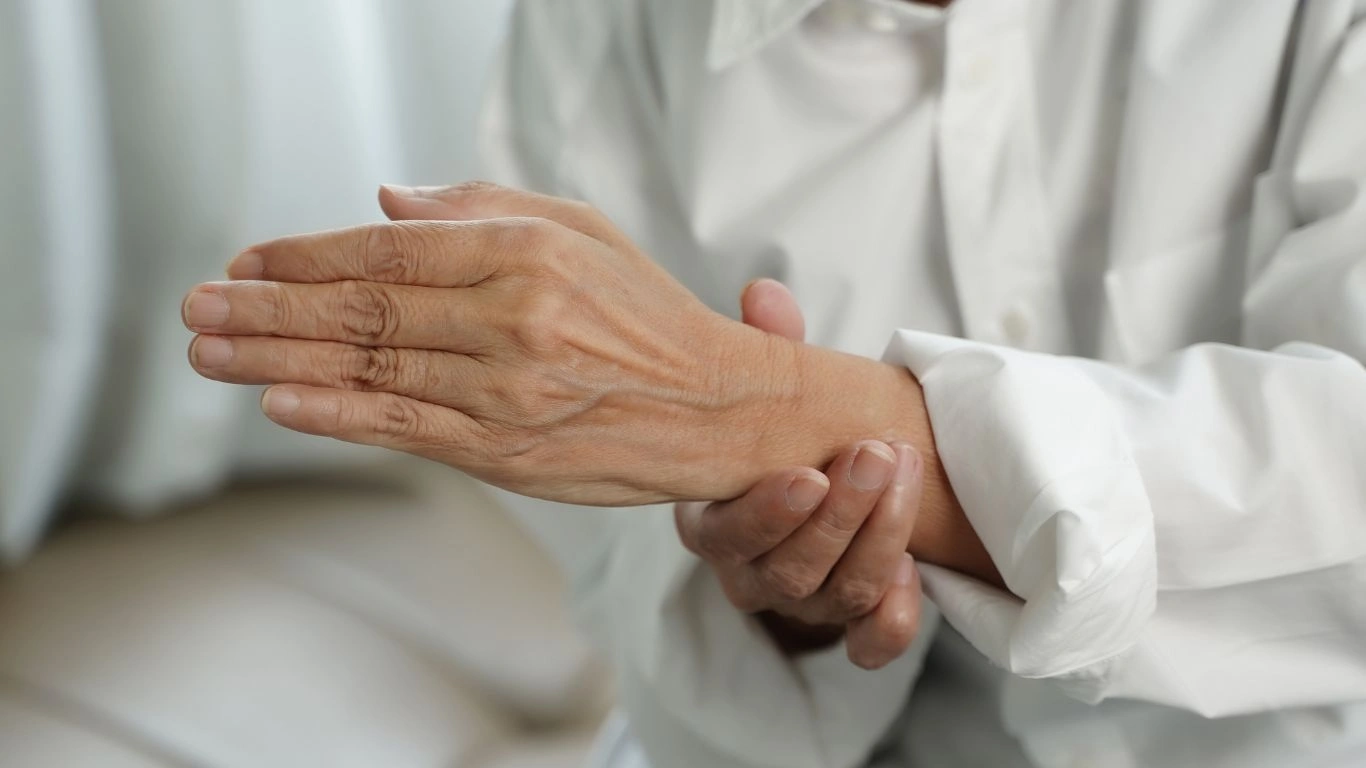Powerful Stress Management Techniques for Rheumatoid Arthritis Relief
Living with rheumatoid arthritis (RA) is no walk in the park, and if you’ve been dealing with it for a while, you probably already know that stress and RA go hand in hand. I’ve seen it time and time again—patients managing their RA flare-ups, only for stress to sneak in and send everything spiraling. But here’s the thing: you can break the cycle. With the right stress management techniques, you can ease inflammation, reduce pain, and regain control over your daily life.
Understanding the Connection Between Stress and Rheumatoid Arthritis

Before we dive into solutions, let’s talk about why stress is such a big deal for those of us with RA. When you’re stressed, your body goes into “fight or flight” mode, releasing cortisol and other stress hormones. In a healthy body, this response is normal and temporary. But for someone with an autoimmune disease like RA, prolonged stress can trigger inflammation, making pain and stiffness much worse.
Personally, I’ve worked with so many patients who noticed a direct link between their stress levels and their RA symptoms. Even in my own experience as a rheumatoid arthritis expert, I’ve seen that unmanaged stress can lead to more frequent flare-ups. And let’s be real—when pain increases, so does frustration, which only adds to the stress. It’s a vicious cycle, but the good news? We can break it.
Top Stress Management Techniques for Rheumatoid Arthritis

Now that we understand the connection, let’s get into some tried-and-true ways to reduce stress and, in turn, keep RA symptoms in check. These techniques aren’t just things I’ve researched—they’re methods I’ve seen work firsthand with my patients.
1. Deep Breathing and Mindfulness
One of the simplest yet most powerful ways to combat stress is through breathing exercises. Trust me, I know it sounds almost too easy, but I’ve had patients tell me how just five minutes of focused breathing has helped them reset during stressful moments.
Try this:
- Inhale deeply through your nose for four seconds.
- Hold the breath for four seconds.
- Exhale slowly through your mouth for six seconds.
- Repeat for a few minutes.
Pair this with mindfulness—being present in the moment without judgment—and you’ve got a stress-busting duo that can help relax both your mind and your body.
2. Gentle Movement: Yoga and Stretching
Let’s face it—when you’re in pain, the last thing you want to do is move. But gentle movement can actually work wonders for both stress and RA symptoms. I often recommend yoga to my patients because it combines stretching, relaxation, and breath control—all in one.
Some of the best yoga poses for RA include:
- Child’s Pose – Helps relieve tension in the back and shoulders.
- Cat-Cow Stretch – Improves flexibility and reduces stiffness.
- Seated Forward Bend – Gently stretches the spine and hamstrings.
Even just five to ten minutes a day can make a huge difference. I’ve seen patients go from struggling with stiffness in the morning to feeling significantly more mobile just by adding a little movement into their routine.
Prioritizing Mental and Emotional Well-Being

3. Journaling: Putting Thoughts on Paper
Sometimes, stress comes from all the emotions we bottle up. One of the simplest ways to process those feelings? Writing them down. I encourage my patients to try journaling—not only does it help clear mental clutter, but it also provides a safe space to reflect on what’s working (and what’s not) in managing their RA.
Not sure where to start? Here are some prompts:
- What was one positive thing that happened today?
- How did my body feel, and what helped me feel better?
- What’s one thing I’m grateful for right now?
Sometimes, just getting thoughts out of your head and onto paper can reduce stress and bring clarity to your RA journey.
Building a Support System for Stress and RA Management

Managing rheumatoid arthritis (RA) is not a solo journey—nor should it be. One of the biggest mistakes I see people make is trying to handle everything alone. The truth is, having a strong support system can make a huge difference, not just physically but mentally and emotionally, too.
When I talk to my patients about stress and RA, I always encourage them to surround themselves with people who understand what they’re going through. Whether it’s family, friends, a support group, or even an online community, having a safe space to vent, share tips, or just be heard can take a weight off your shoulders.
1. Finding Your Tribe: Support Groups and Online Communities
Let’s be real—not everyone in our lives truly gets what living with RA feels like. That’s why connecting with others who do can be incredibly therapeutic. I’ve had patients join RA support groups and tell me it was life-changing. Suddenly, they weren’t alone in their struggles, and they had a place to turn for advice, encouragement, and even a few laughs along the way.
If you’re not sure where to start, try:
- Local RA support groups (check with your doctor or community centers)
- Facebook groups dedicated to rheumatoid arthritis
- Online forums like Reddit’s RA community or health-related websites
Trust me—sometimes, just talking to someone who gets it can ease stress in ways you wouldn’t expect.
2. Communicating with Family and Friends
One of the toughest parts of living with RA is helping loved ones understand what you’re going through. I’ve seen so many patients struggle with feeling misunderstood or even judged. It’s frustrating when people assume you’re “just tired” or that RA is like regular arthritis. This is why open, honest communication is key.
A few tips I always share:
- Explain your symptoms in a way they can relate to. (“Imagine having the flu every day—now add joint pain on top of that.”)
- Be clear about your needs. (“I’d love to join, but I might need to sit down more often.”)
- Share educational resources so they can learn more about RA.
Having a solid support system means educating the people around you. The more they understand, the more they can help—and that can take a lot of stress off your plate.
Making Lifestyle Adjustments to Reduce Stress

Stress sneaks in when we least expect it, and sometimes, daily habits can make it worse without us realizing it. The good news? Small lifestyle adjustments can have a big impact on both stress and RA symptoms.
3. Sleep: Your Secret Weapon Against Stress
If you’re constantly tired, everything feels harder—including managing stress. I always tell my patients, “If you only focus on one thing, make it sleep.” Quality rest allows your body to recover and reduces inflammation, making it easier to handle daily stressors.
Here’s how to set yourself up for a good night’s sleep:
- Stick to a consistent sleep schedule—even on weekends.
- Create a relaxing bedtime routine (think warm baths, reading, or meditation).
- Limit screen time before bed (blue light messes with melatonin production).
It might take some trial and error, but improving your sleep can make a huge difference in how you feel—both physically and mentally.
4. Nutrition: Eating to Support Your Mind and Joints
What we eat plays a bigger role in stress and RA symptoms than most people realize. In my practice, I’ve seen patients make simple dietary changes and notice significant improvements in both their mood and inflammation levels.
Some of the best anti-inflammatory foods include:
- Fatty fish like salmon or mackerel (rich in omega-3s)
- Leafy greens like spinach and kale
- Nuts and seeds (almonds, walnuts, flaxseeds)
- Turmeric and ginger (natural inflammation fighters!)
And of course, reducing processed foods, excessive sugar, and refined carbs can help keep inflammation and stress in check.
5. Hobbies and Activities That Reduce Stress
Last but definitely not least—do more of what makes you happy. It sounds simple, but when you’re dealing with chronic pain, it’s easy to forget to prioritize joy. I always encourage my patients to find activities that bring them peace and relaxation.
Some great stress-relieving hobbies include:
- Gardening (gentle movement + fresh air = win-win!)
- Painting, knitting, or other creative outlets
- Listening to music or playing an instrument
- Spending time in nature—just a short walk outside can do wonders
Finding something you love to do, even for a few minutes a day, can take your mind off stress and shift your focus to something positive.
Case Studies & Real-Life Examples

One of the most powerful ways to understand how stress management techniques help with rheumatoid arthritis is through real-life stories. I’ve worked with many patients over the years, and I’ve seen firsthand how making small changes can lead to huge improvements in both stress levels and RA symptoms.
Case Study 1: Sarah’s Journey with Meditation and Journaling
Sarah, a 45-year-old teacher, came to me struggling with frequent flare-ups, fatigue, and high-stress levels. She was balancing work, family, and her health—but stress always seemed to tip the scale in the wrong direction.
After incorporating guided meditation and daily journaling into her routine, Sarah noticed a difference within weeks. She started by meditating for just 10 minutes a day and using a gratitude journal to shift her focus from frustration to appreciation. Within three months, her stress levels had dropped significantly, and her flare-ups became less frequent.
Case Study 2: Mike’s Success with Yoga and Nutrition
Mike, a 52-year-old retired firefighter, was skeptical when I first suggested gentle yoga and dietary changes. But after experiencing severe stiffness in the mornings, he decided to give it a try.
By adding anti-inflammatory foods to his diet—like omega-3-rich salmon, leafy greens, and turmeric—and practicing yoga three times a week, Mike not only felt more mobile but also noticed an improvement in his mood. His stress levels dropped, and he felt more in control of his body.
Key Takeaways: What You Need to Remember
Living with rheumatoid arthritis is challenging, but managing stress effectively can make a huge difference in your symptoms. Here’s a quick recap of the most important strategies we’ve covered:
- Deep breathing & mindfulness – Helps calm the nervous system and reduce inflammation.
- Gentle movement – Yoga, stretching, and walking can ease joint stiffness and lower stress.
- Journaling – Writing down thoughts and emotions can help process stress in a healthy way.
- Building a support system – Connecting with others who understand RA makes the journey easier.
- Quality sleep – A consistent sleep routine is crucial for reducing stress and improving recovery.
- Nutrition – Anti-inflammatory foods can help manage pain and stress.
- Hobbies & relaxation techniques – Prioritizing joy can shift your focus from stress to self-care.
FAQs
Q: Can stress really trigger an RA flare-up?
A: Yes! Stress increases inflammation in the body, which can make RA symptoms worse. Managing stress effectively can help prevent or lessen flare-ups.
Q: What is the quickest way to reduce stress when I feel overwhelmed?
A: Try deep breathing exercises or a short meditation session. Even five minutes of mindful breathing can calm your nervous system and lower stress.
Q: Are there any supplements that help with RA and stress?
A: Omega-3 fatty acids, turmeric, and magnesium are commonly used for both inflammation and stress relief. Always check with your doctor before starting any new supplements.
A: Be open and honest about how RA affects your daily life. Educating them on the condition can help them understand what you’re going through and offer better support.
Bonus: Additional Resources & DIY Tips
Want to dive deeper into managing RA and stress? Here are some extra resources to check out:
- Arthritis Foundation – Research-backed information on managing RA
- Mindful.org – Free guided meditations and mindfulness exercises
- Healthline’s RA Section – Expert-backed articles on rheumatoid arthritis
And here are a few DIY stress relief tips you can start today:
- Create a cozy relaxation corner with soft lighting, a journal, and a warm blanket.
- Start a nighttime wind-down routine to improve sleep quality.
- Experiment with aromatherapy—lavender and chamomile are great for relaxation.
- Use heat therapy (warm compresses or heating pads) to relax tense muscles and joints.
Appendix: References, Disclaimer & Call to Action
References
- National Center for Biotechnology Information (NCBI)
- Mayo Clinic – Rheumatoid Arthritis
- Arthritis Foundation
Disclaimer
This article is for informational purposes only and does not substitute professional medical advice. Always consult your doctor before making any changes to your treatment plan.
Call to Action
Have you tried any of these stress management techniques for rheumatoid arthritis? I’d love to hear your experiences! Drop a comment below or share this article with someone who might benefit from it. And if you’re looking for more in-depth guidance, don’t hesitate to reach out!

Tarra Nugroho is a dedicated Nurse Practitioner with a strong foundation in family and preventive care. She brings both compassion and clinical expertise to her practice, focusing on patient-centered care and health education. As a contributor to Healthusias.com, Tarra translates medical knowledge into clear, empowering articles on topics like women’s health, chronic disease management, and lifestyle medicine. Her mission is simple: help people feel seen, heard, and informed—both in the clinic and through the content she creates. When she’s not caring for patients, Tarra enjoys weekend hikes, plant-based cooking, and curling up with a good health podcast.







